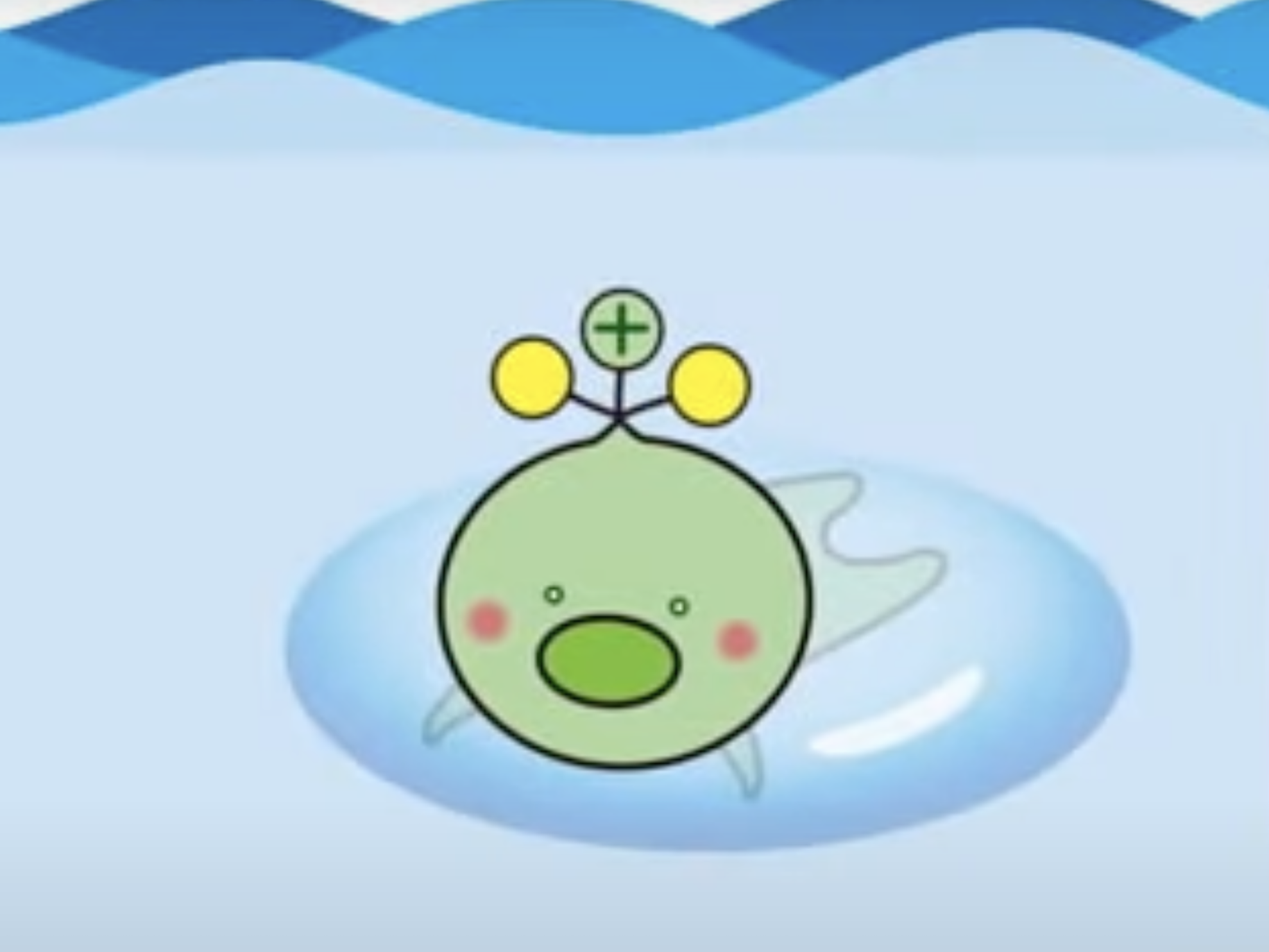
Japan Reconstruction Agency
- Japan has pulled a mascot representing a cartoon tritium atom happily floating around in wastewater.
- People said the cuteness of the mascot undermined a serious issue, local media reported.
- Japan announced plans this week to release wastewater from the Fukushima power plant into the sea.
- See more stories on Insider's business page.
Japan has abruptly scrapped the use of a colorful cartoon mascot aimed at promoting the release of wastewater from nuclear sites, after widespread criticism.
Locals said that the cuteness of the mascot, nicknamed "Tritium-kun" – or "Little Mr. Tritium" – online, diminished the seriousness of the issue, the Asahi Shimbun reported.
The green, round-faced mascot was released as part of a Japanese government campaign aimed at promoting and explaining its decision to gradually release more than 1 million tons of treated wastewater used to cool the Fukushima nuclear reactor into the ocean.
The Reconstruction Agency, a coordinating body established by the Japanese government after the 2011 earthquake and tsunami that caused the Fukushima nuclear disaster, published promotional videos and leaflets involving the mascot on Tuesday.
The agency removed the promotional materials on Wednesday, saying in a statement: "We have received various voices and impressions from people, and we will revise the tritium design based on them. For this reason, we will temporarily suspend the publication of the leaflets and videos."
This video from Fukushima News shows clips of the now-removed promotional footage, which showed the mascot floating in a pool of water:
A representative for the Reconstruction Agency said the reason for expressing tritium as a character is that "it means friendliness. We aimed for an intermediate feeling that is neither 'good' or 'evil'," the Tokyo Shimbun reported.
China, South Korea, and Russia have criticized Japan's plan to release the treated wastewater into the ocean, saying the water still contains one radioactive element, an isotope of hydrogen called tritium. Three independent UN human-rights experts also called Japan's plan "very concerning."
Japan has argued that the wastewater will be diluted far beyond recommended healthy levels for drinking water. The practice is commonly used by power plants around the world, it said.